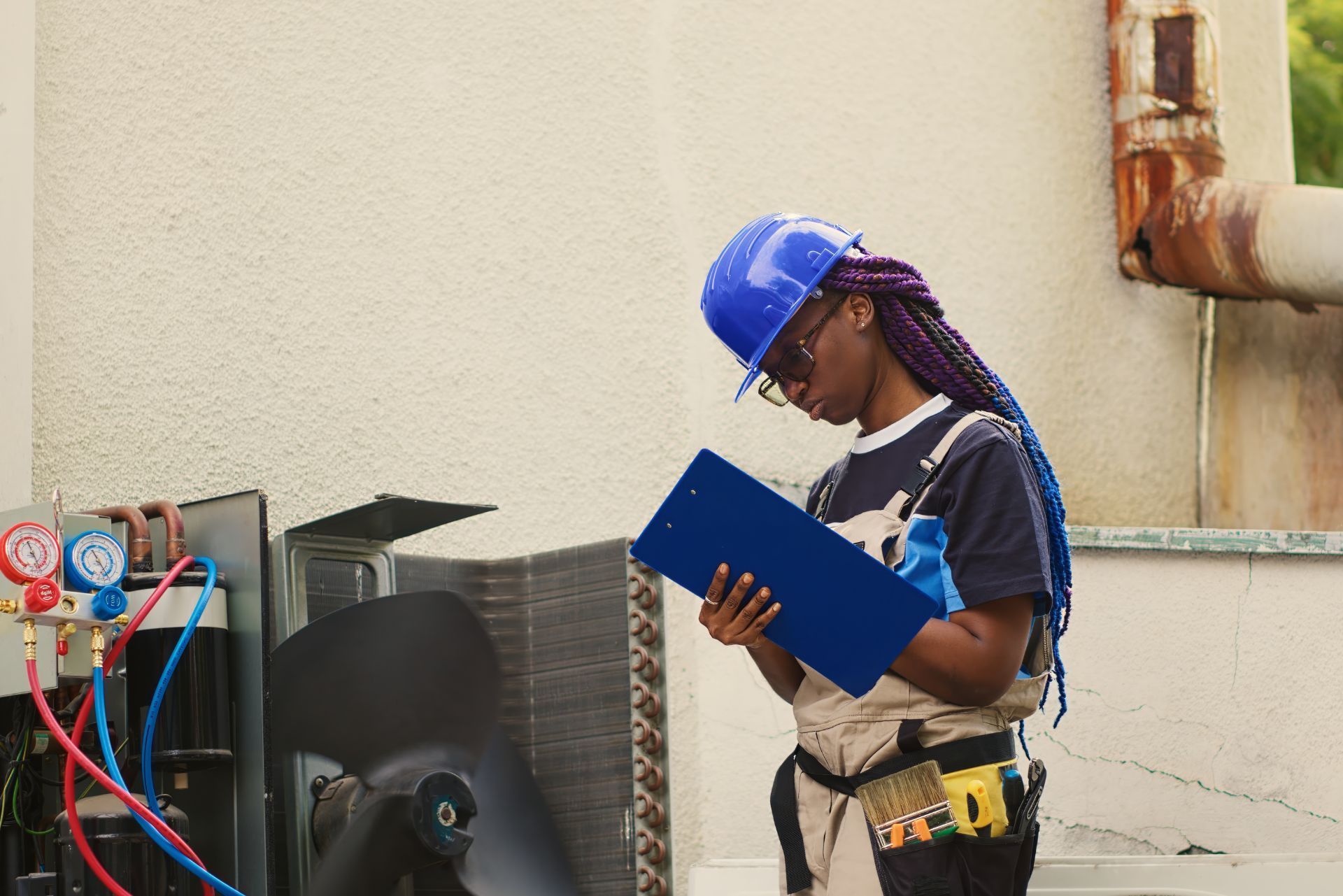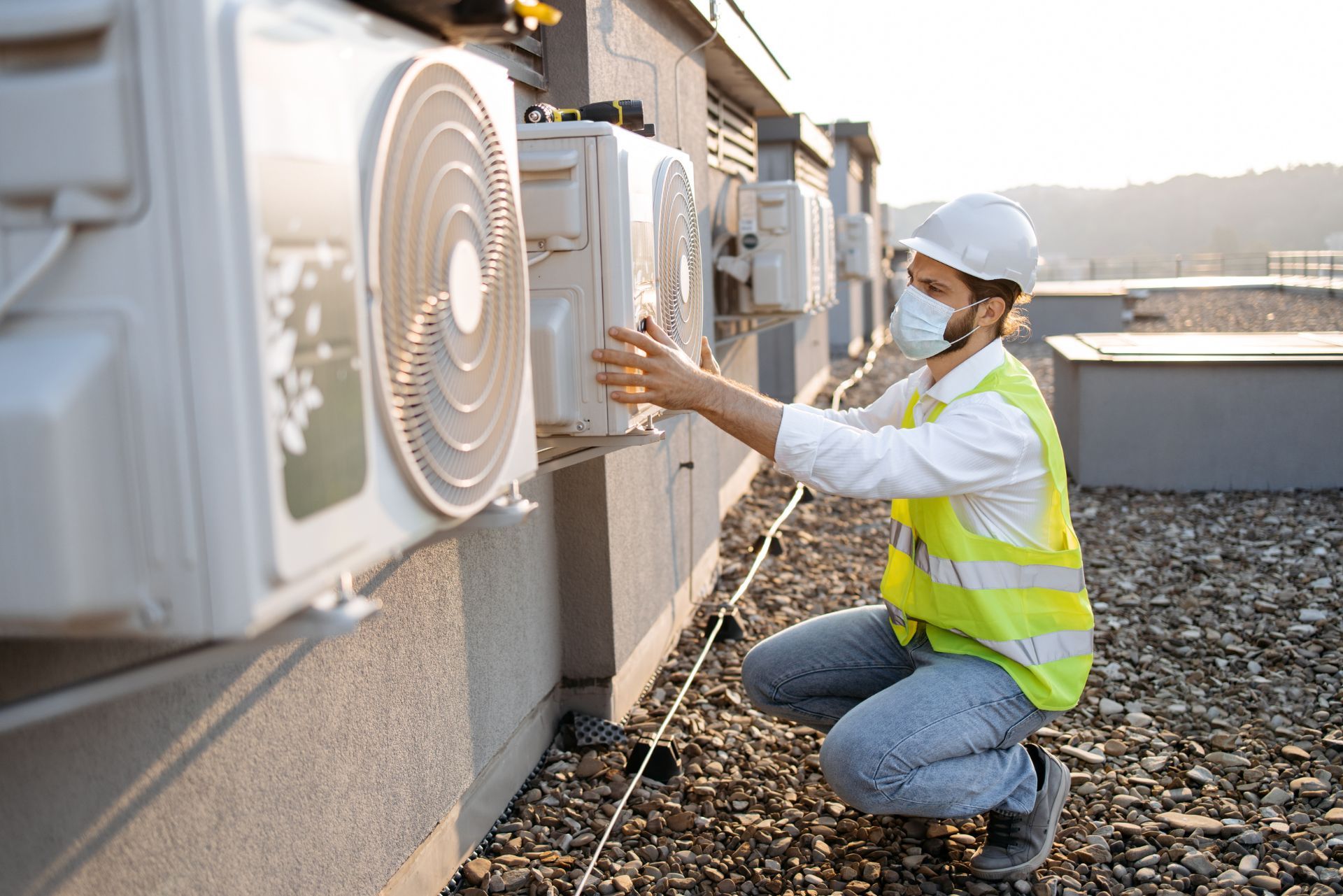Top 3 Recommended Policies

For HVAC contractors and business owners in Alabama, securing the right insurance coverage is not just a regulatory requirement—it’s a critical safeguard against the unique risks posed by the state’s climate and economic environment. Whether you’re just starting out or looking to update your existing policy, understanding the nuances of HVAC insurance in Alabama can protect your business from costly liabilities and ensure compliance with state laws.
Alabama’s homeowners insurance landscape, marked by rising premiums and high natural disaster risk, also influences the insurance market for contractors. According to NerdWallet’s report on Alabama homeowners insurance, the average annual cost is $3,420—62% higher than the national average. This reflects the broader challenges insurers face in the state, which in turn affects contractor insurance policies.
HVAC Contractors in Alabama - Understanding The Importance
Alabama’s HVAC industry is booming, with projections indicating growth to $1.8 billion by 2025, supported by over 1,600 establishments and thousands of employees. This growth, however, comes with increased exposure to risks such as property damage, worker injuries, and liability claims. In fact, the average construction workers' compensation claim in 2023 cost an estimated $51,193, underscoring the financial impact of workplace accidents in the state.
Insurance is essential for HVAC contractors to manage these risks effectively. It provides a safety net that protects against costly claims, legal fees, and potential business interruptions. General liability insurance, for example, is a cornerstone of contractor coverage, offering protection against third-party claims of bodily injury or property damage. In Alabama, premiums for such insurance can range widely—from as low as $275 to upwards of $13,000 annually—depending on the size of the business, coverage limits, and risk factors.
Contractors must also be aware of the specific challenges Alabama’s climate poses. The state experiences 60 to 70 thunderstorm days annually, which can lead to increased property damage and insurance claims. This makes it even more critical for HVAC businesses to have robust insurance policies tailored to these environmental risks. For more detailed information on insurance costs and industry specifics, the Allen Thomas Group provides valuable resources.
Moreover, HVAC contractors in Alabama should consider additional coverage options such as equipment insurance, which protects against loss or damage to essential tools and machinery. Given the high cost of HVAC equipment, this type of insurance can be a game-changer for businesses that rely heavily on their tools for daily operations. Additionally, business interruption insurance can help contractors recover lost income during unforeseen events, such as natural disasters or significant equipment failures, ensuring that they can continue to meet their financial obligations even when operations are halted.
Furthermore, as the HVAC industry evolves with technological advancements, contractors must also stay informed about cyber liability insurance. With more HVAC systems becoming interconnected through smart technology, the risk of cyberattacks increases. This insurance can safeguard against data breaches and cyber threats, which are becoming increasingly relevant in today’s digital landscape. By proactively addressing these diverse insurance needs, HVAC contractors in Alabama can not only protect their businesses but also enhance their credibility and trustworthiness in a competitive market.

Key Types of Insurance Coverage for Alabama HVAC Contractors
HVAC contractors in Alabama should consider several types of insurance to ensure comprehensive protection:
1. General Liability Insurance
This insurance covers claims related to bodily injury, property damage, and personal injury caused by your business operations. Given the physical nature of HVAC work, this coverage is vital for protecting your business from lawsuits stemming from accidents on job sites or damage to clients’ properties. Additionally, general liability insurance can help cover legal fees and settlements, which can be particularly burdensome for small businesses. Having this coverage not only protects your finances but also enhances your credibility with clients, as it demonstrates a commitment to professionalism and responsibility.
2. Workers' Compensation Insurance
With the average workers' compensation claim costing over $50,000 in Alabama, this coverage is mandatory for most contractors with employees. It covers medical expenses and lost wages for workers injured on the job, helping to shield your business from potentially devastating financial liabilities. Moreover, maintaining a strong workers' compensation policy can foster a safer work environment, as it encourages employers to prioritize safety training and hazard prevention measures. This proactive approach not only minimizes the risk of accidents but also boosts employee morale, knowing they are protected in case of unforeseen incidents.
3. Commercial Auto Insurance
Many HVAC contractors rely on vehicles to transport equipment and personnel. Commercial auto insurance protects your vehicles and drivers in case of accidents, theft, or damage, ensuring your operations can continue smoothly. This type of insurance can cover various scenarios, from minor fender benders to major collisions, and can also include coverage for liability in case of injury to third parties. Furthermore, having a robust commercial auto policy can help protect your business's reputation, as it shows that you take responsibility for your fleet and the safety of your employees on the road.
4. Equipment and Tools Insurance
HVAC contractors invest heavily in specialized tools and equipment. This insurance safeguards your valuable assets against theft, loss, or damage, which can otherwise disrupt your work and lead to costly replacements. In an industry where the right tools can significantly impact efficiency and service quality, having this coverage ensures that you can quickly replace or repair essential equipment without incurring substantial out-of-pocket expenses. Additionally, it can provide peace of mind, allowing contractors to focus on their work rather than worrying about the potential financial fallout from equipment loss.
5. Professional Liability Insurance
Also known as errors and omissions insurance, this coverage protects against claims of negligence or mistakes in your professional services. It’s particularly important for contractors who provide design or consulting services alongside installation and maintenance. In an industry where precision and expertise are crucial, having professional liability insurance can safeguard your business against claims that arise from dissatisfied clients or miscommunications. This coverage not only protects your financial interests but also reinforces your commitment to delivering high-quality service and maintaining strong client relationships.
Choosing the right combination of coverages depends on the size of your business, the scope of your operations, and your risk tolerance. Consulting with an insurance professional who understands Alabama’s market can help tailor a policy that fits your needs. Additionally, staying informed about changes in regulations and industry standards can further enhance your risk management strategy, ensuring that your business remains compliant and well-protected against potential liabilities.
Mitigating Risks: The Role of Resilience and Fraud Awareness
Alabama’s weather patterns present significant challenges for HVAC contractors, especially with the state ranking among those with the highest number of thunderstorm days annually. Frequent severe weather events increase the likelihood of property damage and insurance claims. However, resilience measures can reduce these risks substantially.
Dr. Lars Powell, Director of the Center for Risk and Insurance Research at the University of Alabama’s Culverhouse School of Business, emphasizes that "mitigation works and that we can build things that are resilient to climate change." This insight is particularly relevant for contractors who install or maintain HVAC systems in areas vulnerable to hurricanes and storms. By integrating advanced technologies and materials into their projects, contractors can significantly enhance the durability of their installations, ensuring that systems remain operational even in the face of extreme weather. For instance, using corrosion-resistant materials can prolong the lifespan of HVAC units exposed to high humidity and salt air, common in coastal regions.
Homes built to Fortified standards, which include enhanced construction techniques designed to withstand severe weather, have been shown to experience fewer and less costly insurance claims during events like Hurricane Sally. Fred Malik, Managing Director of the Fortified program, highlights the importance of these standards, noting that "we are having record breaking year after record breaking year of disasters and insured losses, and we have been searching for meaningful ways to reduce the severity and the frequency of those losses." HVAC contractors who align their work with such resilience standards may not only reduce claim costs but also enhance their reputation and client trust. Additionally, incorporating energy-efficient systems can further benefit homeowners by lowering utility bills, making the investment in resilient construction even more appealing.
Another critical risk factor is contractor fraud, which Alabama officials have warned about ahead of hurricane season. Homeowners are advised to obtain multiple estimates and verify contractor credentials to avoid scams that can jeopardize both the homeowner’s investment and the contractor’s legitimacy. The
National Insurance Crime Bureau provides ongoing updates and guidance on this issue, making it a valuable resource for contractors and clients alike. Furthermore, educating clients about the signs of fraud, such as unusually low bids or high-pressure sales tactics, can empower them to make informed decisions. Contractors who prioritize transparency and clear communication not only protect themselves but also foster a culture of trust and safety within the community.
Cost Considerations and How to Manage Your Insurance Premiums
Insurance costs can vary widely depending on coverage levels, business size, and risk exposure. In Alabama, general liability insurance premiums for contractors average around $1,300 annually but can fluctuate significantly. Understanding the factors that influence these costs can help HVAC contractors manage their expenses effectively.
Key factors that impact premiums include:
- Business size and revenue: Larger businesses with higher revenues typically face higher premiums due to increased exposure.
- Claims history: A history of frequent or severe claims can drive premiums up.
- Coverage limits and deductibles: Higher coverage limits and lower deductibles generally increase premium costs.
- Risk management practices: Implementing safety protocols and resilience measures can reduce risk and potentially lower premiums.
Contractors should regularly review their insurance policies and work with their providers to adjust coverage as their business evolves. Bundling different types of insurance or working with specialized insurers familiar with the Alabama HVAC market can also yield cost savings.
Moreover, contractors should consider investing in training programs for their employees, focusing on safety and best practices. By fostering a culture of safety, not only can they minimize the likelihood of accidents and claims, but they may also qualify for discounts on their premiums. Insurers often reward businesses that demonstrate a commitment to risk management, which can translate into significant savings over time.
Additionally, staying informed about industry trends and regulatory changes can help contractors anticipate potential impacts on their insurance needs. For instance, as environmental regulations evolve, HVAC contractors may need to adjust their coverage to include new liabilities associated with eco-friendly practices or technologies. Engaging with industry associations can provide valuable resources and insights, enabling contractors to make informed decisions about their insurance strategies and ultimately enhance their bottom line.

Preparing for Alabama’s Unique Climate Challenges
Alabama’s climate is characterized by a high frequency of thunderstorms, hurricanes, and other severe weather events. For HVAC contractors, this means not only dealing with increased repair and replacement demands but also managing the risks these conditions pose to their own operations.
Ensuring that your insurance policies cover weather-related damages is essential. Additionally, contractors can benefit from aligning their services with state and industry programs focused on building resilience. The University of Alabama’s Center for Risk and Insurance Research has conducted studies showing that homes built to Fortified standards suffer fewer and less costly insurance claims during hurricanes. This presents an opportunity for HVAC contractors to advocate for and implement best practices that reduce risk for homeowners and their own businesses.
By staying informed about weather trends and regulatory updates, HVAC contractors can better prepare for seasonal challenges and maintain business continuity. For detailed insights into Alabama’s climate risks and mitigation strategies, the University of Alabama’s research offers valuable guidance.
Moreover, HVAC contractors should consider investing in training programs that equip their teams with the skills necessary to respond effectively to extreme weather conditions. This includes not only technical training on the latest HVAC technologies but also emergency response protocols that can be crucial during severe weather events. By fostering a culture of preparedness within their teams, contractors can ensure that they are ready to assist homeowners promptly, minimizing downtime and enhancing customer satisfaction.
In addition to training, leveraging technology can play a significant role in adapting to Alabama's climate challenges. Implementing smart HVAC systems that can be monitored remotely allows contractors to provide proactive maintenance services. These systems can alert homeowners to potential issues before they escalate, which is particularly valuable during storm seasons when rapid response is essential. By embracing innovation, HVAC contractors can not only improve their service delivery but also position themselves as leaders in the industry, ready to tackle the unique challenges posed by Alabama's climate.
Conclusion: Protecting Your HVAC Business in Alabama
Operating as an HVAC contractor in Alabama comes with unique opportunities and challenges. With a growing industry, a climate prone to severe weather, and the ever-present risk of contractor fraud, securing the right insurance coverage is indispensable. From general liability and workers' compensation to specialized coverage for equipment and professional liability, a well-rounded insurance plan is key to safeguarding your business.
Moreover, embracing resilience through adherence to Fortified building standards and proactive risk management can reduce insurance claims and enhance your reputation. Staying vigilant against fraud and maintaining strong relationships with trusted insurance providers will further strengthen your business foundation.
For HVAC contractors seeking to navigate Alabama’s complex insurance landscape, leveraging expert insights and current data is essential. With the right knowledge and preparation, your business can thrive despite the challenges posed by the state’s climate and market conditions.
Explore more about contractor insurance specifics and industry trends at the
IBISWorld Alabama Heating & Air-Conditioning Contractors report to stay ahead in this competitive field.
Contact Us
HVACInsure is fully licensed and permitted to sell contractor and commercial insurance in Alabama.
We proudly serve clients throughout Alabama and maintain partnerships with local Alabama insurance carriers to ensure HVAC professionals receive compliant, affordable, and comprehensive coverage that meets project and regulatory requirements.
HVACInsure Focuses on Alabama HVAC Contractor Insurance
Huntsville - Birmingham - Montgomery - Mobile - Tuscaloosa - Hoover - Auburn
- Dothan - Decatur - Madison - Gadsden - Florence - Homewood - Fairfield -Forestdale - Irondale - Leeds - Spanish Fort - Helena - Hueytown - Chelsea - Alexander City - Andalusia - Orange Beach - Wetumpka
Frequently Asked Question
Common HVAC Contractor Insurance Questions in Alabama
These FAQs address common contractor questions. As HVACInsure grows, we will update this section with real client experiences and answers.
Why should an HVAC contractor use HVACInsure instead of a general agency?
Specialists understand jobsite requirements, certificate wording, and common endorsements for HVAC work. You get cleaner paperwork, faster approvals, and coverage that fits how your crews operate.
This reduces delays at the gate, avoids gaps, and helps you pass compliance checks the first time.
How fast can I get a Certificate of Insurance (COI)?
Most standard COIs are issued the same business day after binding or updates. If you need additional insured, primary/non-contributory, or waiver language, we prepare it correctly the first time.
Our goal is simple: get your crew on site without paperwork delays.
What coverages do HVAC contractors usually need?
Core policies include General Liability, Commercial Auto, Workers’ Comp, Property/Tools, Inland Marine, and Umbrella. Many projects require higher limits and specific endorsements.
We align your coverage with contract terms and explain each choice in plain language.
Will my tools and scheduled equipment be covered in vans or on jobsites?
Yes. Inland Marine (tools and equipment) can cover items in transit, stored in vehicles, or staged on site.
High-value items can be scheduled, and limits can match your daily field use to keep work moving.
Can I lower my premium without weakening protection?
Often, yes. Clean driver lists, accurate payrolls, safety programs, and bundling policies can help.
We review your profile, request carrier credits, and adjust limits and deductibles to control cost while meeting project requirements.
What should I do after a loss?
Contact us right away so we can file with the correct carrier and set expectations. We guide documentation, next steps, and follow-ups until closure.
Fast reporting and clear records help resolve claims sooner and keep your team focused on work.

Still have questions?
Can’t find the answer you’re looking for? Please chat to our friendly team!

About The Author: James Jenkins
I’m James Jenkins, Founder and CEO of HVACInsure. I work with HVAC contractors and related trades to simplify insurance and make coverage easier to understand. Every day, I help business owners secure reliable protection, issue certificates quickly, and stay compliant so their teams can keep working safely and confidently.
Recognized by National HVAC Trade Associations
These trusted organizations set best practices and standards that carriers rely on when underwriting HVAC risks.
Membership signifies adherence to HVAC industry standards and contractor best practices.


